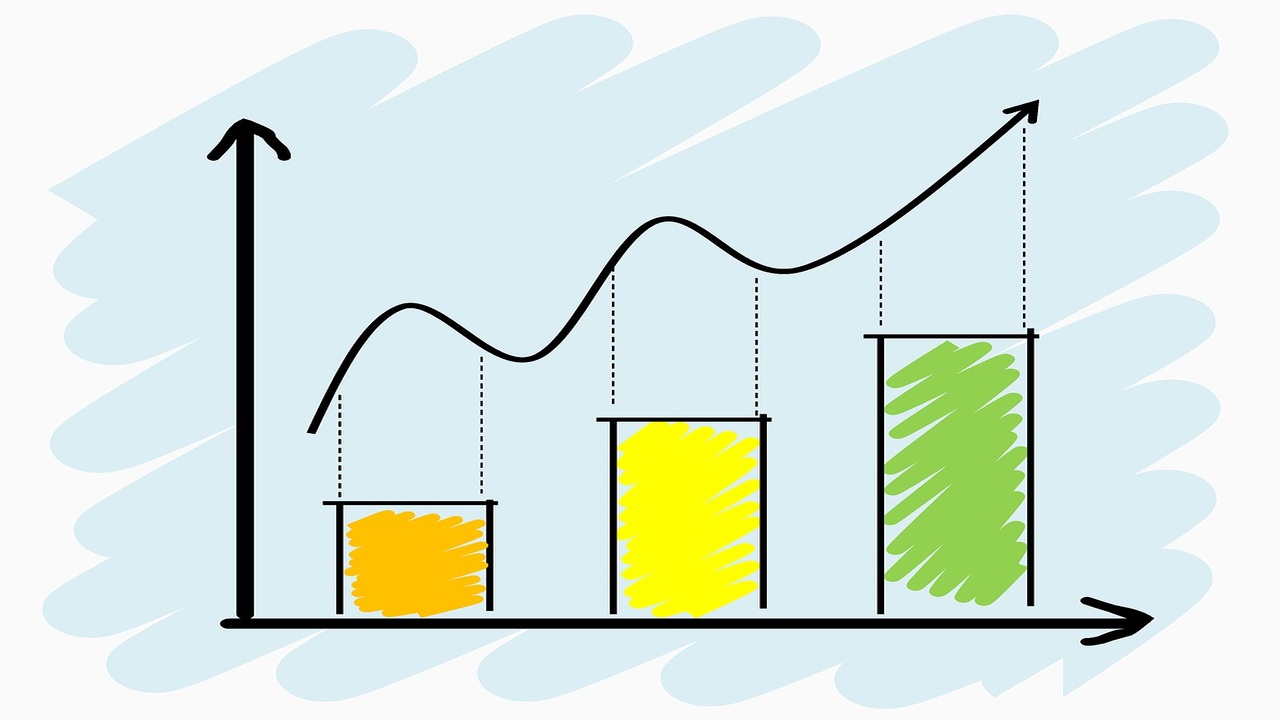The stock market is a marketplace for the acquisition and sale of financial products. Commodities, shares, bonds, currencies, derivatives, and cryptocurrencies are examples. It acts as a marketplace for buyers and sellers to transact at market-determined prices on desired financial assets. This section provides a definition of the term “stock market” as well as examples and various types stock market.
The Stock Exchange connects those in need of finance to others with capital who wish to invest it. It implies that individuals with surplus funds help those in need to grow their businesses and make more money. These markets are classified based on their maturity, delivery time-frame, and organizational structure, as well as the promises made about them.
Overview of Stock Market
A stock exchange is any location where shares can be bought and sold. This comprises the equity, bond, foreign currency, and derivative markets, among others. The stock market is essential to the functioning of capitalist economies.
Stock markets are essential to the functioning of capitalist economies because they distribute money and provide liquidity to firms and entrepreneurs. The markets make it possible for buyers and sellers to exchange financial assets. Stock markets produce securities that provide a return to those with excess funds (investors/lenders) while also making these funds available to others with greater financial requirements than current resources (borrowers).
The stock market is only one of several markets. By purchasing and selling financial assets such as stocks, bonds, currencies, and derivatives, the stock market creates money. The amount of information transparency available to market participants has a substantial effect on the efficiency and precision of stock market prices. Due to macroeconomic considerations such as taxation, the market value of securities may not reflect their underlying value.
Examples of Stock Markets
The London Stock Exchange was the world’s first stock exchange. It all began at a coffeehouse frequented by stock dealers in 1773. Philadelphia launched the first stock exchange in the United States in 1790.
The Buttonwood Agreement founded Wall Street in New York City in 1792. The contract was name after the buttonwood tree it was sign beneath. The agreement was the first of its kind in the United States, and 24 dealers signed it. 1817 saw the establishment of the New York Stock Exchange Board.
Top 9 – Different Types of Stock Market
You can also look at types of investors in stock market for more research purpose. A multitude of factors are use to categorize these marketplaces. The basic classifications are determine by the type of claim; level of maturity, delivery time, and organization structure. Depending on the type of claim traded, a financial market could be classified as either a debt or an equity market. In this discussion, let’s examine the various types of stock market.
Money Types of Stock Market
Money markets often exchange highly liquid, low-risk, and short-term (less than one year) securities with low interest rates. Frequently, money market instruments mature in less than a year. The money markets are define by institutional and dealer wholesale transactions.
Individual investors may invest in money market mutual funds, and bank customers may open money market accounts. Individuals can also participate in the money markets by acquiring, for example, short-term certificates of deposit, municipal bonds, or US Treasury bills.
Currency Trading
Participants can purchase, trade, hedge, and speculate on currency exchange rates on the foreign exchange market. The foreign exchange market is the most liquid market because cash is the most liquid asset. The daily transactions on the currency market reach $6,6 trillion; which is greater than the daily futures and types of stock market transactions combined.
The foreign exchange market, like the over-the-counter market, is decentralize, with computers and brokers located around the globe. Included are banks, corporations, central banks, investment management firms, hedge funds, and individual FX traders.
Stock Market Types
The word “stock market” encompasses numerous financial markets. These are the exchanges where traders and investors can buy and sell shares posted for sale by corporations. The secondary market is a market where several buyers and sellers swap corporate shares. Through initial public offerings (IPOs), companies raise funds on the IPO types of stock market.
In addition to trades on major exchanges like the NYSE and the Nasdaq, OTC stock transactions are also possible (OTC). The majority of stock trading occurs on regulated exchanges, which serve as economic indicators and sources of capital gains and dividend income for investors, particularly those with IRAs and 401(k)s. The majority of stock trading occurs on exchanges that are subject to regulation.
Stock market participants include retail and institutional investors, traders, market makers (MMs), and professionals who maintain liquidity and establish two-sided markets. Both retail and institutional investors and traders are possible. Brokers who do not hold any of the securities facilitate transactions between buyers and sellers.
Over-the-Counter Markets
Over-the-counter (OTC) markets are decentralize, meaning they have no physical presence and only conduct business electronically. In an over-the-counter (OTC) market, two parties exchange securities directly without using a broker. Certain shares may be tradable off-exchange, however the majority of stock transactions occur on exchanges.
Consequently, the OTC derivatives markets represent a significant portion of the stock market. In general, over-the-counter (OTC) markets and transactions are less regulated, less liquid, and less transparent than official markets.
Bond Types of Stock Market
A bond is a types of asset in which an investor lends money at a fixed interest rate for a specific period of time. A bond is a contract between a lender and borrower that specifies the loan’s terms and payments. To finance projects and operations, corporations, local, state, and federal governments can all issue bonds.
For Example, the US Treasury offers financial instruments such as notes and bills on the bond market. Bond market is also refer as the debt market, credit market, and fixed-income securities market.
Commodity Markets
These exchanges provide the trading of “hard” and “soft” commodities, as well as agricultural and energy products (such as oil, gas, and carbon credits), precious metals (such as gold, silver, and platinum), and additional hard and soft commodities (such as cotton, coffee, and sugar). These exchanges, sometimes known as spot commodity markets, enable the exchange of physical things for cash.
Spot commodities serve as underlying assets on derivatives markets; where commodities are predominantly tradable. Forwards, futures, and options on commodities are tradable worldwide on both OTC and listed markets. CME and ICE are two examples of exchanges that are listed (ICE).
Derivatives Types of Stock Market
Derivative is a contract between two or more parties whose value is determine by an underlying financial asset (such as a security) or an agreed-upon collection of assets (like an index). It is a types of secondary market, can only be value relative to the value of its parent security.
A derivative has no intrinsic value. In a derivatives market, only futures contracts, options contracts, and other complex financial items are exchanged. As underlying instruments, stocks, bonds, commodities, currencies, interest rates, and market indexes can all be utilize.
Futures exchanges are venues for listing and selling futures contracts. Unlike over-the-counter forwards, futures markets are well-regulated and use clearinghouses to settle and confirm trades. In futures markets, standard contract parameters are also utilize. Contracts for options are exchange on markets overseen by the Chicago Board Options Exchange (CBOE). Advertisements can be place for contracts on a variety of assets. Including stocks, bonds, commodities, and other trading products.
Exchanges for Cryptocurrencies
In recent years, cryptocurrencies such as Bitcoin and Ethereum; which are decentralize digital assets based on blockchain technology, have gained prominence. Thousands of distinct cryptocurrency tokens can now be bought and sold on decentralize online cryptocurrency exchanges throughout the world. These exchanges enable dealers to convert digital wallets into fiat currencies such as dollars or euros.
Since most Bitcoin exchanges are centralize, users are susceptible to hacking and other sorts of fraud. In contrast, decentralised exchanges operate independently of any central authority. These exchanges allow users to trade digital currencies without the need for an official exchange to facilitate the transactions. Major cryptocurrencies are available for futures and options trading.
Investments and First Public Offerings
A new company will require cash from a number of investors in order to launch. As a business grows, it frequently need financing that it cannot obtain through its existing activities or a conventional bank loan. Through an initial public offering (IPO), businesses can raise funds by selling shares to the public (IPO). As a result, the company will shift from a “private” corporation with a small number of owners to a publicly traded corporation with a large number of investors.
The initial public offering (IPO) allows early investors to profitably sell a portion of their holdings. Pre-marketing by underwriters often influences the first public offering price.
Once a company’s stock is listed on a stock exchange and trading commences. Its share price will fluctuate as investors and traders evaluate and reevaluate its intrinsic value and supply and demand.
Conclusion
A stock exchange is a platform where firms and investors can raise funds and generate significant profits. Each side is ecstatic to be able to do so on this platform. Due to their access to the most eligible buyers, sellers in this sector earn the maximum profit. I hope that after reading this information, you understand what a stock market is, how it operates, and what types of stock market exist.







